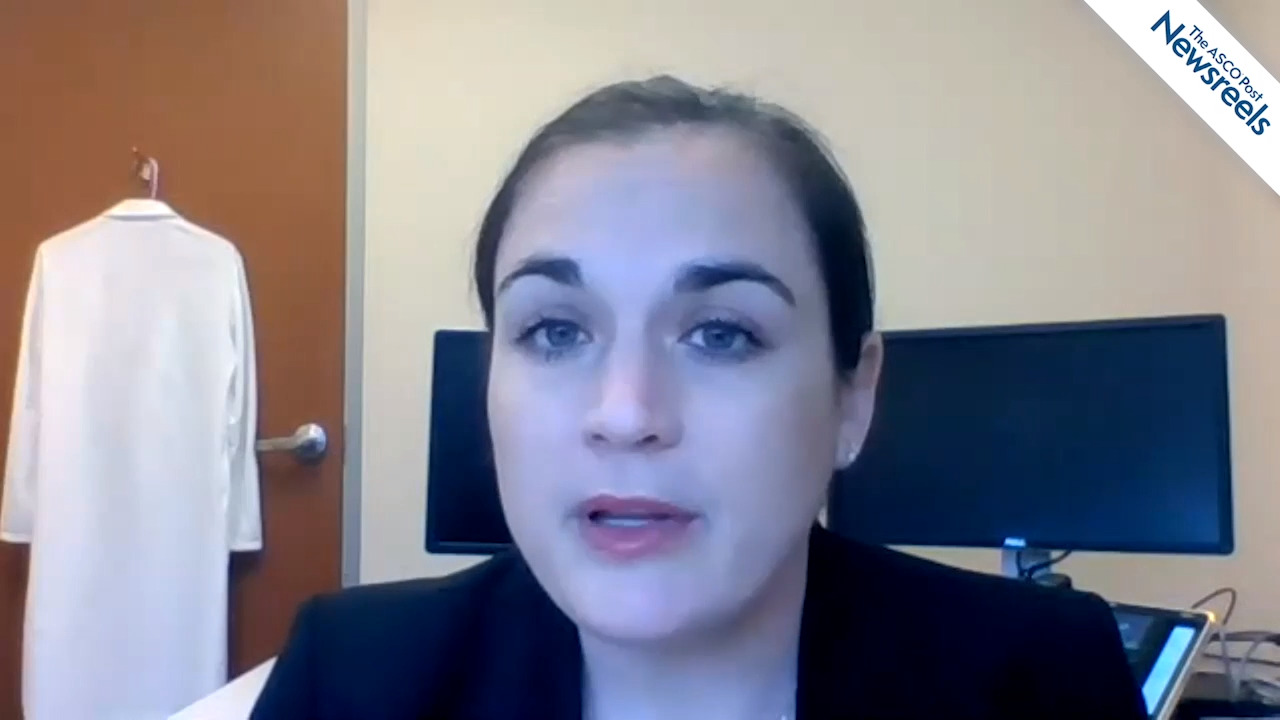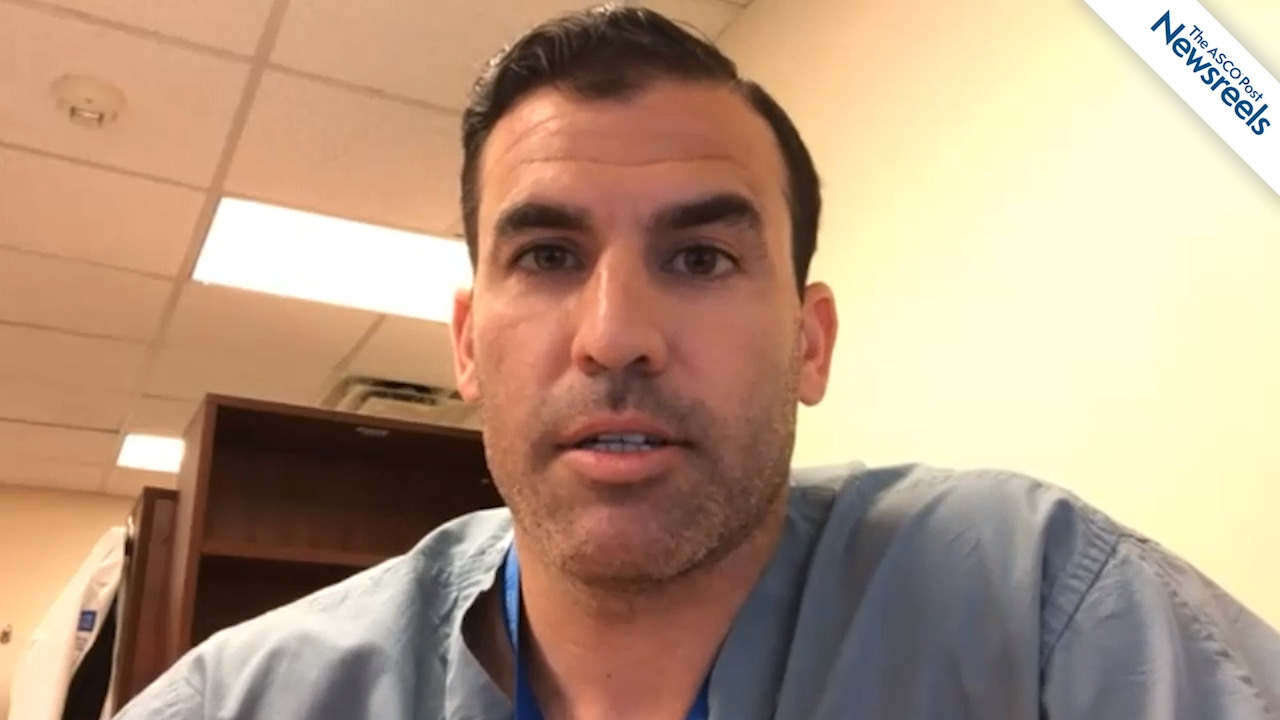Brittany A. Davidson, MD, on a Model to Predict the Need for Opioids After Gynecologic Surgery
SGO 2021 Virtual Annual Meeting on Womens Cancer
Brittany A. Davidson, MD, of Duke University, discusses the development and validation of the GO-POP model (Gynecologic Oncology Predictor of Postoperative opioid use), an individualized patient-centered predictive tool designed to help avoid overprescribing pain medications (ID# 10253).
The ASCO Post Staff
Emily Hinchcliff, MD, MPH, of The University of Texas MD Anderson Cancer Center, discusses phase II results of durvalumab (anti–PD-L1) and tremelimumab (anti–CTLA-4) administered in combination vs sequentially for the treatment of recurrent platinum-resistant non–clear cell ovarian cancer (ID #10240).
The ASCO Post Staff
Charles N. Landen, MD, of the University of Virginia, discusses results from the first clinical trial in ovarian cancer to demonstrate that neither a BRCA1/2 mutation nor a homologous recombination deficiency improves sensitivity to a therapeutic PD-L1 blockade in patients receiving atezolizumab vs placebo combined with carboplatin, paclitaxel, and bevacizumab for newly diagnosed disease (ID #10240).
The ASCO Post Staff
Anthony B. Costales, MD, of the Baylor College of Medicine, discusses results from the MIID-SOC trial, which explored the question of whether laparoscopic surgery for removal of ovarian, fallopian tube, or primary peritoneal cancer following neoadjuvant chemotherapy is feasible, safe, and provides similar outcomes as open surgery.
The ASCO Post Staff
Laura Chambers, DO, of the Cleveland Clinic, discusses data showing that combining paclitaxel and cisplatin vs cisplatin alone with hyperthermic intraperitoneal chemotherapy at interval debulking surgery improved progression-free survival. There was no difference in postoperative complications, length of stay, or time to chemotherapy, but admission to intensive care units did increase.
The ASCO Post Staff
Dana M. Roque, MD, of the University of Maryland Medical Center, discusses phase II results showing that weekly ixabepilone plus biweekly bevacizumab may improve overall response rate as well as progression-free and overall survival for women with platinum-resistant or -refractory ovarian, fallopian tube, and primary peritoneal cancers, a population in need of treatment choices.





